
Java allows method overloading, where two or more methods of the same class can share the same name.
Method overloading occurs when the method parameter declarations are different.
Method overloading is a way of implementing polymorphism in Java.
To overload a method, you need to declare different versions of it.
The compiler automatically selects the correct method based on the parameters.
An important restriction: overloaded methods must differ in the type and/or number of parameters, not just the return type.
Overloaded methods can also differ in their return types, but the parameters are essential for choosing the correct method.
When an overloaded method is called, the version with parameters that match the arguments is executed.
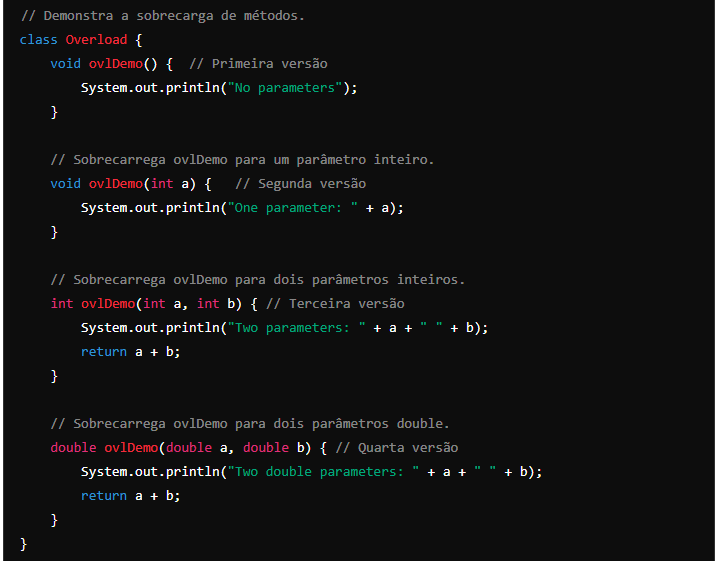
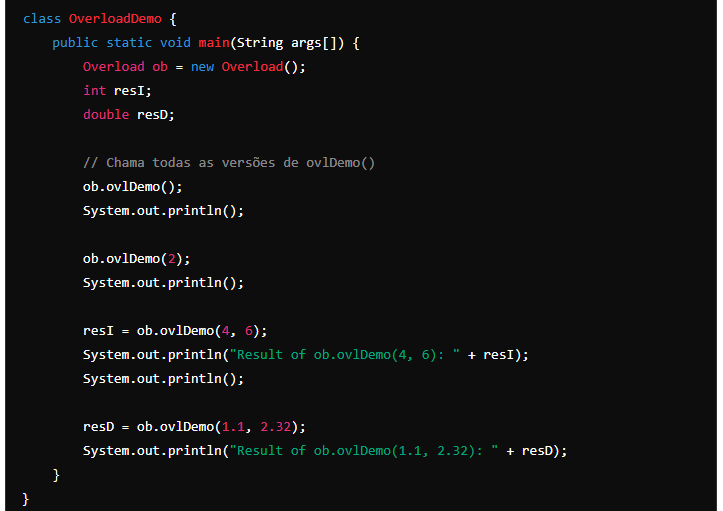
The ovlDemo() method is overloaded four times with different signatures:
First version: no parameters.
Second version: with an integer parameter.
Third version: with two integer parameters.
Fourth version: with two double parameters.
The first two versions of ovlDemo() return void, while the last two return a value.
Method overloading is not affected by return type.
Attempts to use both versions of ovlDemo() with signatures only differentiated by return type will cause an error.
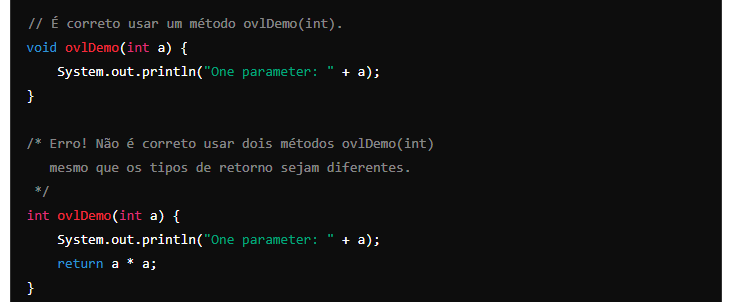
Difference in return types is not enough for method overloading in Java.
The example shows that two methods with the same signature, even with different return types, cause an error.
Java performs automatic type conversions, and these conversions also apply to parameters of overloaded methods.
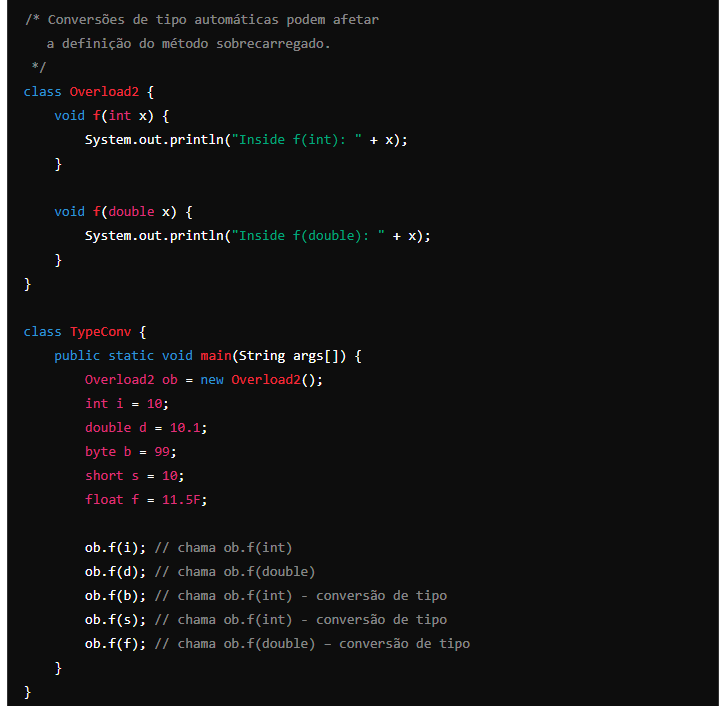
The example shows two versions of the f() method: one with an int parameter and the other with a double parameter.
Byte and short type values are automatically converted to int by calling the f(int) method.
Float values are converted to double by calling the f(double) method.
Automatic conversions occur when there is no direct match between a parameter and an argument.
Adding a version of f() with a byte parameter may change how values are handled.
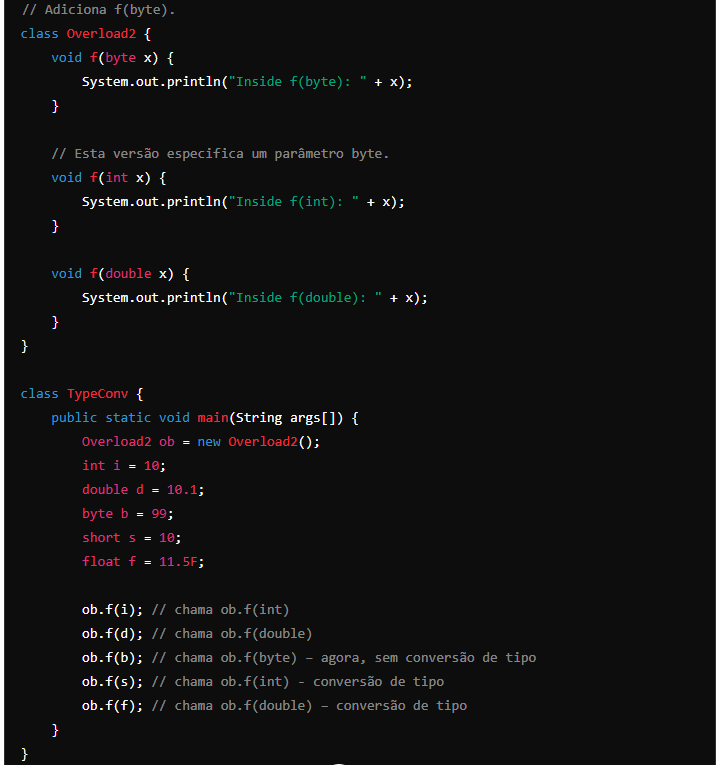
With the current version, when f() is called with a byte argument, f(byte) is called directly, without automatic conversion to int.
Method overloading allows polymorphism in Java, facilitating the implementation of the “one interface, many methods” paradigm.
In languages without overloading support, similar methods for different data types need to have different names (e.g. abs(), labs(), fabs() in C).
Java allows you to use the same name for methods with different types of arguments, such as the abs() method of the Math class, which is overloaded for different numeric types.
Overloading reduces complexity by allowing related methods to share a common name.
Selection of the correct method version is done by the compiler based on the argument type.
Although overloaded methods can perform different activities, they must be related to maintain clarity and coherence.
Avoid using overloaded method names for unrelated operations as this may confuse the intent of the code.
The above is the detailed content of Method Overloading. For more information, please follow other related articles on the PHP Chinese website!




